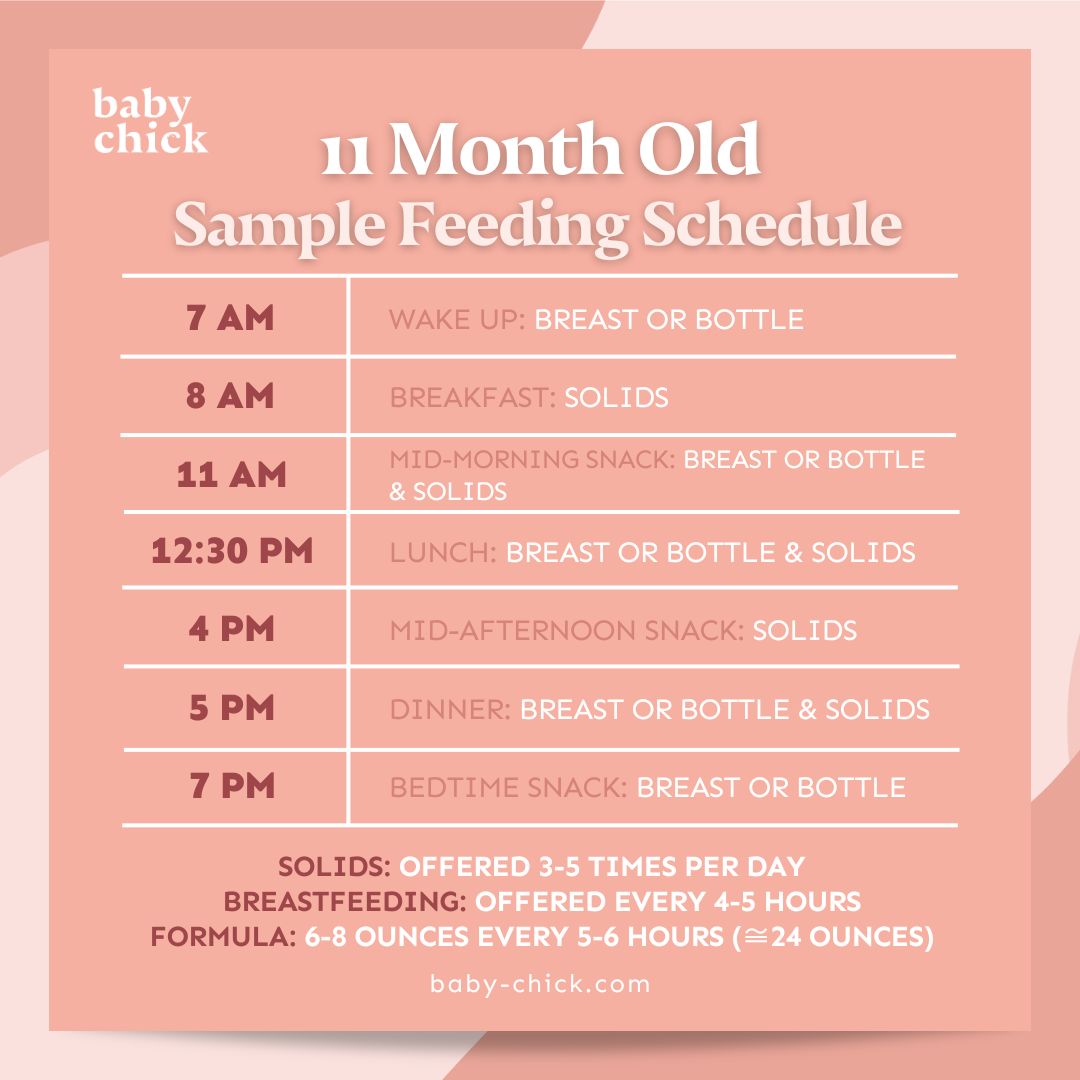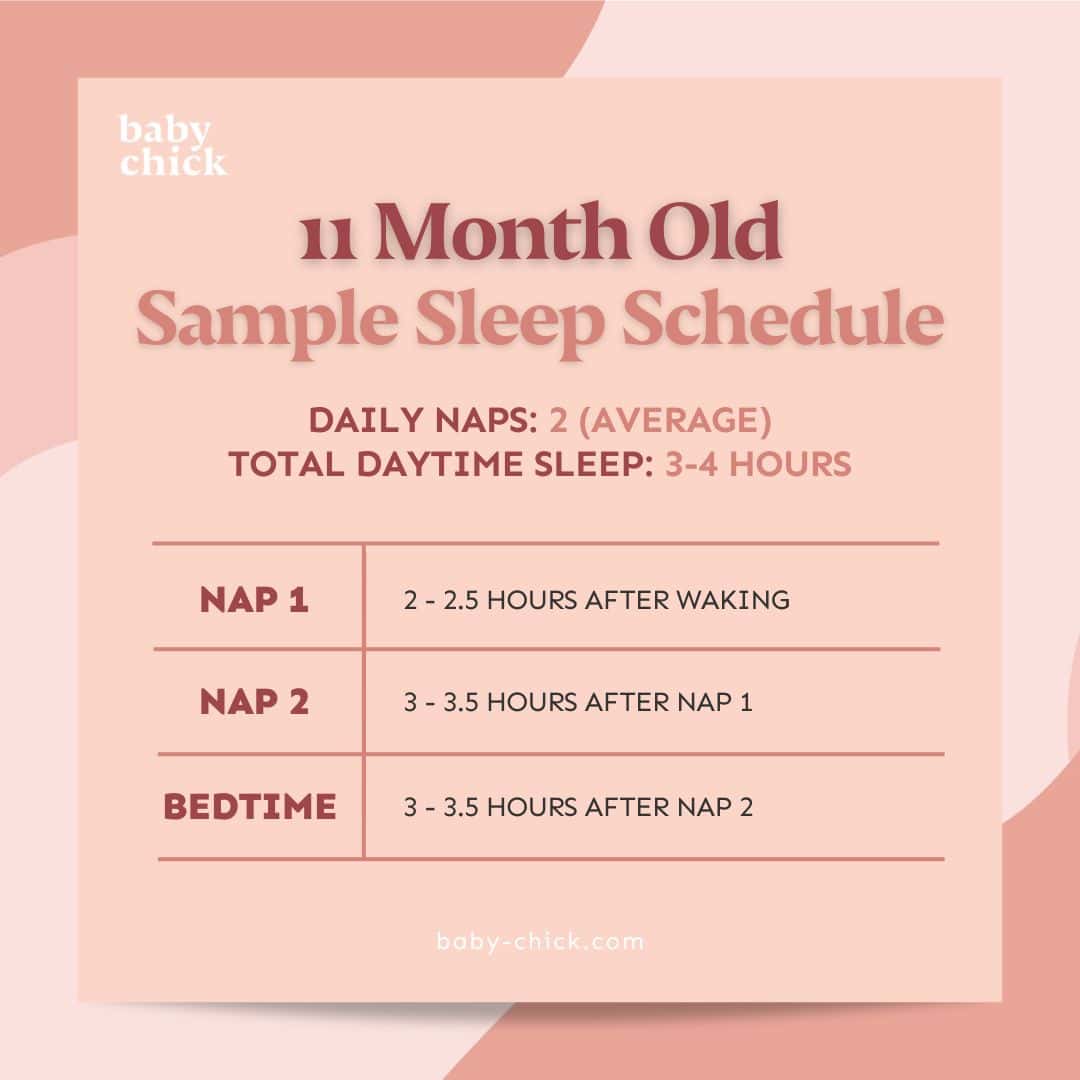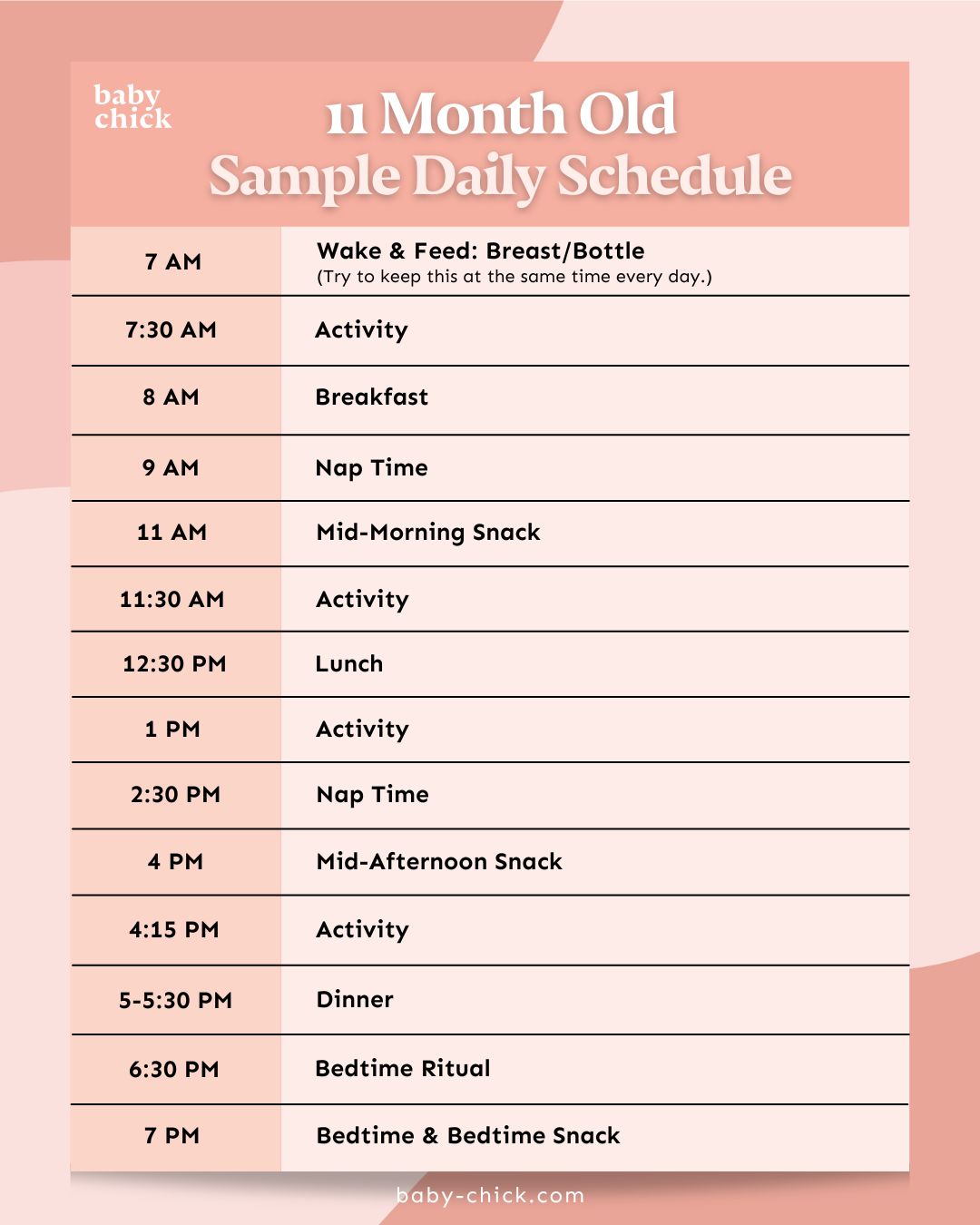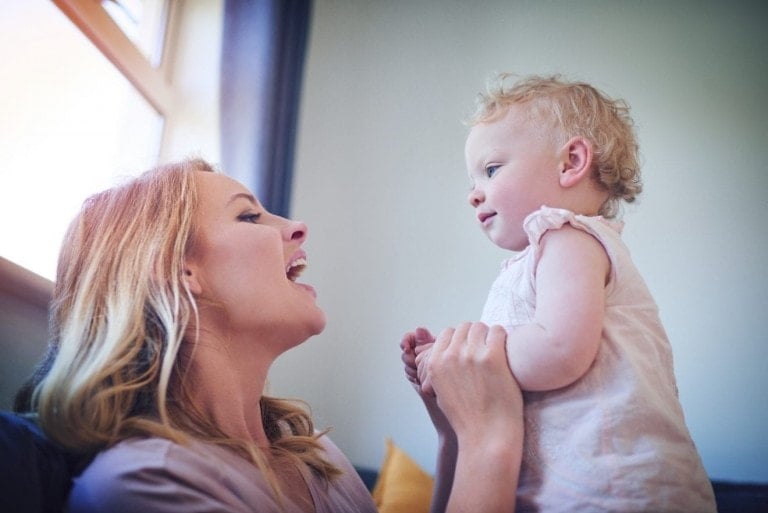Your baby is one step closer to turning a year old, and their development isn’t slowing. They’ve grown into busy and inquisitive beings with evolving personalities. As your baby reaches 11 months old, you may wonder what new milestones they’ll reach or how their feeding schedule and sleeping habits may change. This article will walk you through all these new changes for your 11-month-old, with everything from sleep regression and how much they should weigh to meal ideas and fun activities to do together.
11-Month Developmental Milestones
The final months of your baby’s first year involve a whole lot of movement. At 11 months old, they’ll continue growing their motor skills and developing new social milestones. Some milestones to look forward to include:1
- Pulling up to stand using furniture
- Sitting down from a standing position without support
- Walking around furniture while holding on
- Standing without the support of your hands or the furniture
- Walking while holding onto your hands
- Picking up food or objects with their fingers and feeding themselves
- Drinking from a cup with a spout or straw
- Saying “dada” and “mama” with increasing babbling noted
- Waving “bye-bye” and shaking their head “no” when asked a yes-or-no question
- Recognizing and picking up familiar objects when asked
11-Month-Old Feeding Schedule

As your baby becomes more active and mobile, their appetite will grow. And as they eat more and more solid foods, you may wonder how much breast milk or formula your 11-month-old needs. They typically only need 12-24 ounces of breast milk or formula per day if they’re eating solids well.2
Some good examples of solid foods your baby may enjoy are yogurt, mashed bananas or potatoes, thick or lumpy vegetables, and proteins such as eggs, cottage cheese, Greek yogurt, meats, and avocado.2 It can seem overwhelming figuring out what to feed your 11-month-old baby every day, so here are some meal ideas to give you inspiration:2
Breakfast
- ¼-½ cup of infant cereal
- ¼-½ cup of mashed fruit
- 1 scrambled egg
- 2-4 oz of breast milk or formula
Mid-Morning Snack
- ¼-½ cup of cooked vegetables
- 2-4 oz of breast milk, formula, or water
Lunch
- ¼-½ cup of protein such as meat, beans, or yogurt
- ¼-½ cup of cooked yellow or orange vegetables
- 2-4 oz breast milk or formula
Mid-Afternoon Snack
- Soft crackers or teething cookies
- ¼-½ cup of fruit
- 2-4 oz of water
Dinner
- ¼-½ cup of protein
- ¼-½ cup of cooked green vegetables
- ¼-½ cup of grains such as cereal, rice, or pasta
- ¼-½ cup of fruit
- 2-4 oz of breast milk or formula
Bedtime Snack
- 2-5 oz of breast milk or formula
While your baby’s appetite and love for new foods will grow, they should avoid a couple of foods. The first is honey, which is harmful to infants due to the botulism spores found in it. The second food to avoid is cow’s milk until they’re 1 year of age and older. While cow’s milk isn’t inherently bad for babies, they still need the nutrients found in breast milk and formula. Adding cow’s milk before 1 year can increase a baby’s risk for anemia, or low iron. Some babies prefer breast milk or formula during meal times, and others prefer it during “snack” time.1
11-Month-Old Sleep Schedule

As for their sleep schedule, your 11-month-old baby will need about 12-16 hours of sleep daily, with nine to 12 hours of that sleep happening at night. They’ll typically take two to three naps per day, with each nap ranging from 30 minutes to two hours, depending on your baby and their sleep habits.1
When your baby approaches 11 months old, you may see another episode of sleep regression. Sleep regression happens when they have a change in their sleeping pattern. They may start having increased periods of fussiness during the night and have trouble falling back asleep. Sleep regression is caused by a variety of things, but some of the most common reasons include:3
- Teething pain
- Learning a new skill, such as pulling up to stand
- Experiencing separation anxiety
- A growth spurt
- Disruption to their schedule caused by illness or travel
Sleep regression is difficult for everyone in the family, but thankfully, it doesn’t last long. It will usually last one to four weeks. Some tips to help your 11-month-old cope with sleep regression include:3
- Know their sleep cues and put them to bed at the first sign that they’re sleepy, such as yawning or rubbing their eyes.
- Keep a consistent naptime and bedtime.
- Maintain a consistent bedtime routine.
- Give them extra attention during the day and at bedtime to help with any separation anxiety.
- It’s okay to allow them to fuss for a few minutes in the middle of the night before soothing them if that feels right for your family.
- Some parents will limit cuddling, rocking, and nighttime feeding since these activities can encourage frequent awakening.
Daily Schedule

You’ve undoubtedly established a daily schedule with your baby over the past few months, and thankfully, you won’t see many changes to that schedule. Your 11-month-old baby’s feeding schedule will match up more with the rest of the household. Their sleep schedule is more predictable, and they’ll still need about two naps per day. At 11 months old, their wake windows will look much like they did the previous month. Aim for a bedtime that allows them nine to 12 hours of uninterrupted sleep. This will help make sure your baby is getting the rest they need.1
Health Concerns to Watch Out For
As your baby approaches their first birthday, well-child checkups will start to be spaced out. At 11 months old, your baby won’t need any routine vaccines, but that doesn’t mean there aren’t a few things you need to watch out for.7 Some things to monitor include your baby’s weight and any signs or symptoms of illness:
Weight Concerns
The best way to ensure your baby is gaining enough weight is to look at their weight throughout the last few months. An 11-month-old baby should be on track to weigh triple their birth weight by 12-15 months.8 They’ll gain an average of 13 ounces monthly to reach that goal.1
Illness Concerns
Babies explore their environment by putting everything into their mouths. This will eventually lead to them getting sick. Knowing what symptoms to watch out for is helpful in understanding when to take your baby to the doctor. These symptoms include:4
- Change in their appetite or refusal to eat several times in a row
- Change in their behavior (for example, being more sleepy, being hard to wake up, or crying more than usual)
- Temperature higher than 102 F that lasts longer than a day
- Fever lasting longer than three days
- Diarrhea that lasts longer than a week or vomiting that lasts longer than a day
- Signs of dehydration, like a decreased amount of tears, decreased amount of wet diapers, and dry mouth
- Struggling to poop or pain while pooping
- Trouble breathing, cold symptoms lasting longer than 10 days, or a cough lasting more than one week
- Ear pain
- An unexplained rash or a rash accompanied by a fever
Contact your doctor if your baby is experiencing any of these symptoms.
Activities for 11-Month-Olds
Your 11-month-old baby’s newfound movement comes with a newfound urge to explore, and there are certain activities you can do together to help them blossom. They’ll enjoy interacting with you as you read them books, such as books with flaps they can open. To encourage language development, respond to all their babbling even though it will be hard to understand them.5 Your baby is learning to feed themselves at this age, so let them experiment with using a spoon at meal times. More food will get in their hair than in their mouth, but making a mess is part of their learning experience!1
Safety Tips
While safety has been essential during every stage of parenting, this stage may require you to add a few extra safety precautions to your home. Some of the most important safety tips to keep in mind include:5,6
- Keeping all household cleaners, choking hazards, and breakable objects out of reach
- Using gates on all stairways
- Padding sharp corners or removing the furniture from their reach
- Anchoring all heavy furniture to the wall
- Installing window guards on all windows
- Securing baby in their playpen or highchair while you cook
- Emptying all water from the bathtub after use and never leaving baby unattended in the bath
- Fencing in your pool if you have one
- Using a rear-facing car seat
- See our Top Baby Safety Products for Your Home
Your 11-month-old baby will see many exciting developmental leaps and milestones, expand their appetites, and grow their social skills as they approach their first birthday. Crafting a nourishing diet, handling sleep regression with care, and engaging in play will create a positive and healthy journey for you and your growing baby.
































